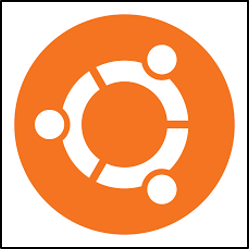Linux is a widely used operating system by numerous businesses and people around the globe. Anyone can access, modify, and distribute their source code without any cost as it is an open-source operating system. It has different versions, called “flavors”, Two of the most popular flavors are Oracle Linux and Ubuntu Linux.
This post will discuss the following content:
What is Oracle Linux?
Oracle Linux (formerly named Oracle Enterprise Linux (OEL)) is a free and open-source Linux distribution based on RHEL (Red Hat Enterprise Linux). It was initially released in 2006 by Oracle Corporation.
It is designed for enterprise applications that need high performance, reliability, and scalability. It is a great choice for organizations using hardware and software products as it is certified for use with Oracle’s software stack. It provides many features, such as automation, virtualization, cloud management, and advanced security. Moreover, it comes with two Linux kernel binary compatible with RHEL:
- Unbreakable Enterprise Kernel
- Red Hat Compatible Kernel
What is Ubuntu Linux?
Ubuntu Linux is a Linux distribution based on Debian with large community support as it is open source. It is a free OS initially released in 2004 that is developed by Canonical Ltd. It is a popular choice for personal use and small businesses because it is user-friendly, accessible, and offers extensive community support. It is also popular because of its frequent updates and support for numerous hardware.
Differences Between Oracle Linux and Ubuntu Linux
Let’s enlist some differences between Oracle Linux and Ubuntu Linux in the tabular form:
| Parameters | Oracle Linux | Ubuntu Linux |
|---|---|---|
| License | It is a free and open-source distribution with some paid services | It is free to use and distribute, and users can access updates and support for free |
| Target Audience | It is designed for enterprise applications that need high performance, reliability, and scalability | It is a good choice for personal use and small businesses because it is user-friendly and accessible |
| Support | It offers basic support for free and premier support (software updates, security patches, and technical support) is paid with the subscription fee | It offers free community support and paid support options for enterprise users |
| Security | It offers advanced security features, such as kernel security enhancements and access controls. Moreover, it is certified for use with Oracle’s software stack | It offers strong security features, such as AppArmor and SELinux |
| Updates | It offers long-term support (LTS) releases for up to 10 years | It offers both LTS and non-LTS releases, with LTS releases supported for up to 5 years |
Conclusion
Oracle Linux and Ubuntu Linux are two popular Linux distributions with distinct differences. Oracle Linux is designed for enterprise applications, and it is certified for use with Oracle’s software stack. Ubuntu Linux is designed for personal use and small businesses. Both distributions offer strong security features, support options, and updates. However, the decision of choosing between them is dependent on the needs, preferences, and demands of the user or organization.


